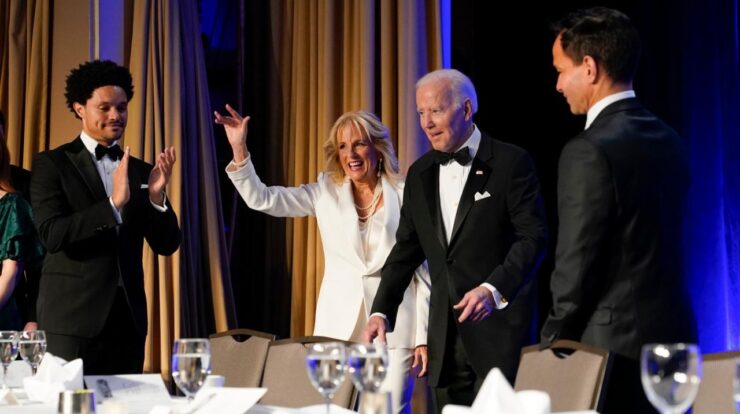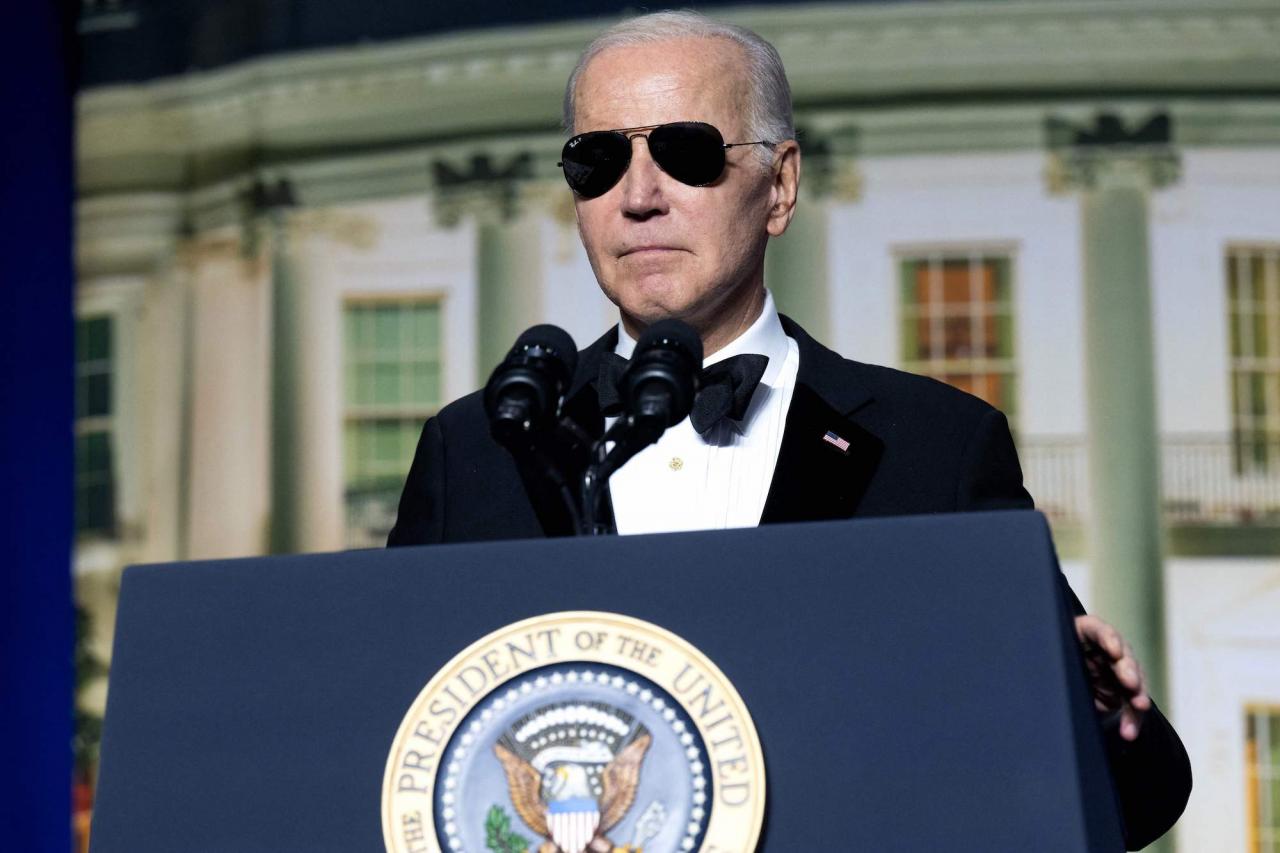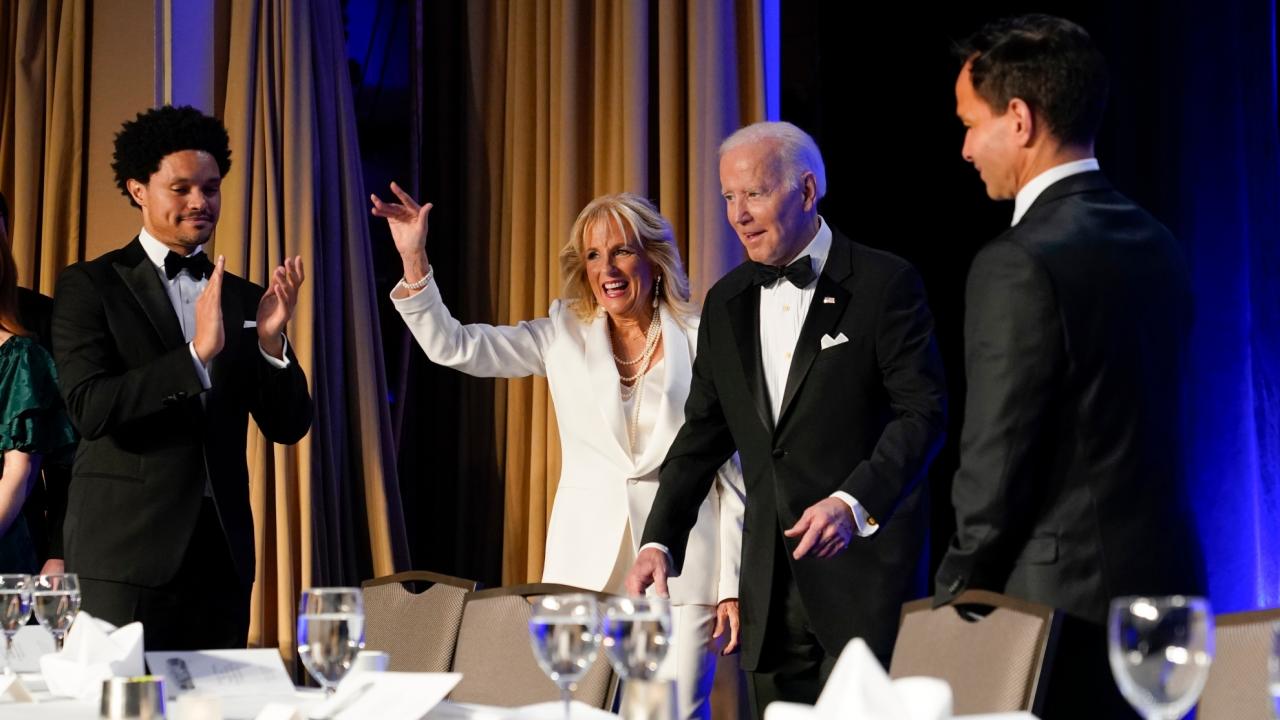
White house correspondents dinner watch – White House Correspondents’ Dinner Watch invites you to witness an extraordinary event where journalism, politics, and entertainment converge. This annual gathering has become a cultural phenomenon, offering a unique lens into the intersection of power, humor, and the media.
Prepare to delve into the history, notable speeches, political commentary, social significance, media coverage, and future trends of this captivating event. Join us as we dissect the White House Correspondents’ Dinner, revealing its impact on the political landscape and the relationship between the media and the government.
White House Correspondents’ Dinner Overview
The White House Correspondents’ Dinner is an annual event that brings together journalists, politicians, and celebrities to celebrate the First Amendment and raise funds for journalism scholarships.
Established in 1921, the dinner has become a significant event in Washington, D.C.’s social and political calendar. It provides a unique opportunity for journalists to interact with government officials and for politicians to engage with the media in a less formal setting.
Format and Key Elements
- The dinner features a keynote speech from the President of the United States, who traditionally uses humor and satire to address current events and media coverage.
- A comedian is also invited to perform, providing a comedic perspective on politics and the news media.
- The event includes a live auction to raise funds for journalism scholarships.
Notable Speeches and Performances
Over the years, the White House Correspondents’ Dinner has featured memorable speeches and performances.
Presidential Speeches, White house correspondents dinner watch
- In 1961, President John F. Kennedy delivered a witty and self-deprecating speech that poked fun at himself and the media.
- In 2011, President Barack Obama used his speech to criticize Donald Trump, then a prominent businessman and reality TV star.
Comedic Performances
- In 1987, comedian Mark Russell delivered a scathing performance that criticized both the media and the Reagan administration.
- In 2016, comedian Michelle Wolf’s performance sparked controversy for its jokes about the Trump administration.
Political Commentary and Analysis

The White House Correspondents’ Dinner provides a platform for political commentary and analysis.
The President’s speech is often used to address major issues facing the country and to set the tone for political discourse.
The dinner has also been used by journalists and comedians to criticize the government and the media.
Social and Cultural Significance

The White House Correspondents’ Dinner is a major social event in Washington, D.C.
It showcases the city’s power dynamics and provides a glimpse into the relationship between the media and the government.
The dinner is also known for its fashion and etiquette, with attendees dressing in formal attire and following strict rules of conduct.
Media Coverage and Analysis: White House Correspondents Dinner Watch
The White House Correspondents’ Dinner receives extensive media coverage.
Media outlets analyze the President’s speech, the comedian’s performance, and the overall tone of the event.
Social media has also become a major platform for discussing and analyzing the dinner.
Historical and Archival Materials
Historical and archival materials related to the White House Correspondents’ Dinner provide valuable insights into the event’s evolution and significance.
These materials include speeches, transcripts, photographs, and videos.
They can be used to research the history of the dinner and to understand its impact on journalism and politics.
Future Trends and Predictions
The White House Correspondents’ Dinner is likely to continue to evolve in the future.
Possible trends include a greater focus on diversity and inclusion, the use of new technologies, and changes in the format of the event.
The dinner is likely to remain a significant event in Washington, D.C., providing a platform for political commentary, social interaction, and media analysis.
Outcome Summary
The White House Correspondents’ Dinner stands as a testament to the power of free speech, satire, and the enduring bond between the press and the public. Its legacy will continue to shape the political and social landscape for years to come, providing a platform for critical commentary, laughter, and the celebration of the First Amendment.
Quick FAQs
What is the purpose of the White House Correspondents’ Dinner?
The White House Correspondents’ Dinner is an annual event that brings together journalists, politicians, celebrities, and other influential figures to celebrate the freedom of the press and raise funds for scholarships.
Who attends the White House Correspondents’ Dinner?
The dinner is attended by the President of the United States, members of the Cabinet, members of Congress, journalists from various media outlets, and other invited guests.
What is the significance of the White House Correspondents’ Dinner?
The dinner has become a cultural phenomenon, providing a platform for political commentary, humor, and the celebration of the First Amendment.